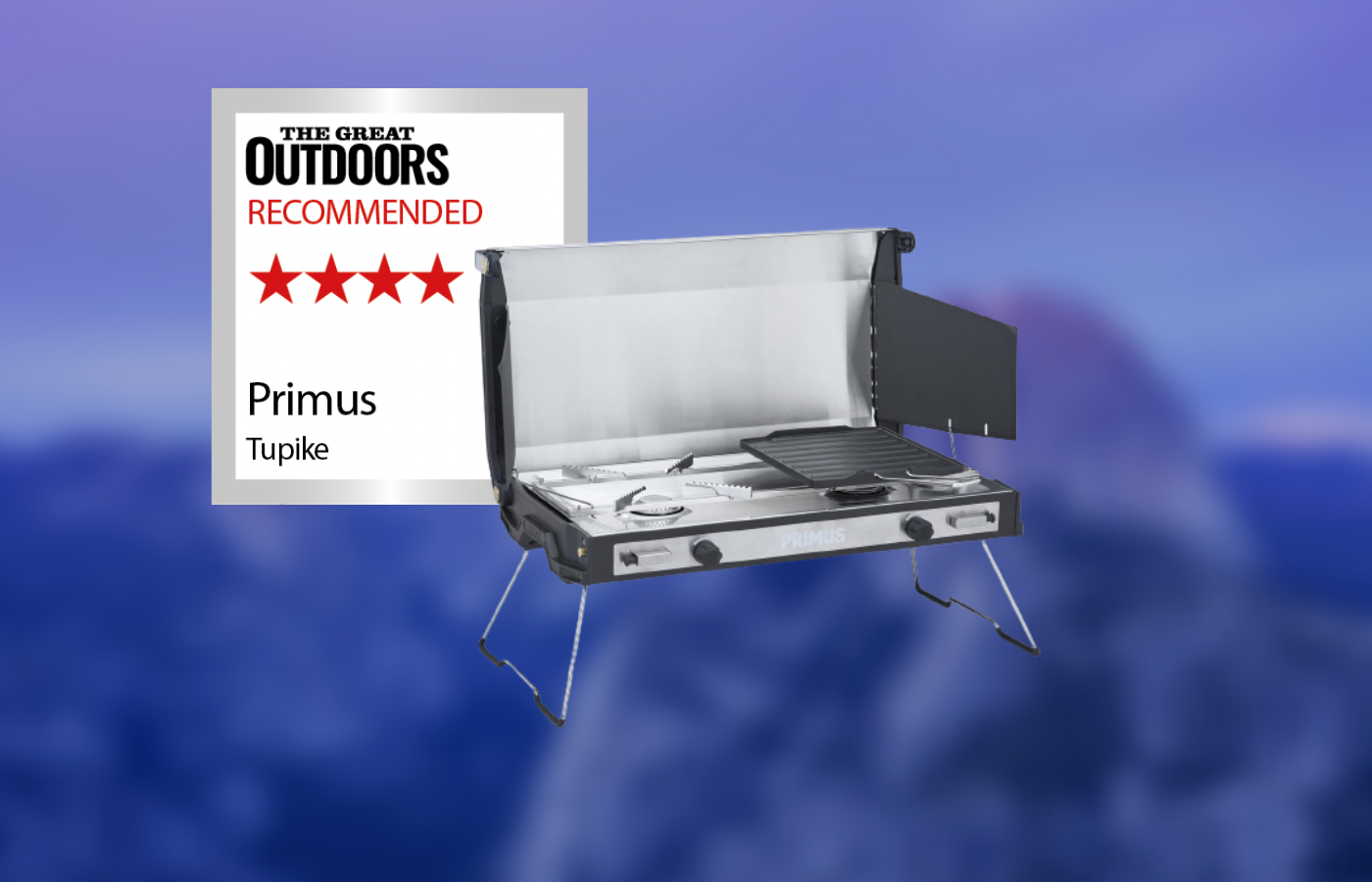



The Primus Tupike is a two-burner stove built for basecamps rather than backpacking – and as such it is the odd one out here – but it’s so well-made that it’s worth a closer look.
Running on a regular screw-in gas canister, a sizable pressure regulator makes for a genuine camp kitchen, ideal for family or group situations where you need to prepare a full meal, not just rehydrate packet food.
The Primus Tupike’s Simmering capabilities are excellent, and having two fully independent burners makes for great flexibility. There are two piezo igniters and two flame controls, offering plenty of fine adjustment. A griddle is included so you can even do cheese toasties at camp!
Price: $260 | £240 (Buy now from alpinetrek.co.uk)
The Primus Tupike is large and heavy, but by the same token it’s designed for use at static camps and built to last. It’s also a Rolls Royce of a thing, beautifully finished in brass, oak and brushed aluminium. In transit, it becomes a ‘suitcase’ with a locking handle for carrying. In use, it sits on two locking and folding legs to maximise table space, or without for extra stability. Adjustable windshields on either side of the burners can be clipped into place, and the raised lid becomes a splashback. The hardware can be stripped out for cleaning. Folded down, oak wood strips on the lid outer are perfect for resting hot pans.
This is a gorgeous piece of hardware and an absolute pleasure to cook with, slightly let down by its fuel efficiency. Power isn’t an issue per se – it doesn’t feel sluggish to use and the simmer capability is a real luxury – but it is a bit of a gas guzzler. I’d recommend using larger canisters, and still consider boil/rest cycles where you can (for example, pasta and rice) to conserve your fuel.

